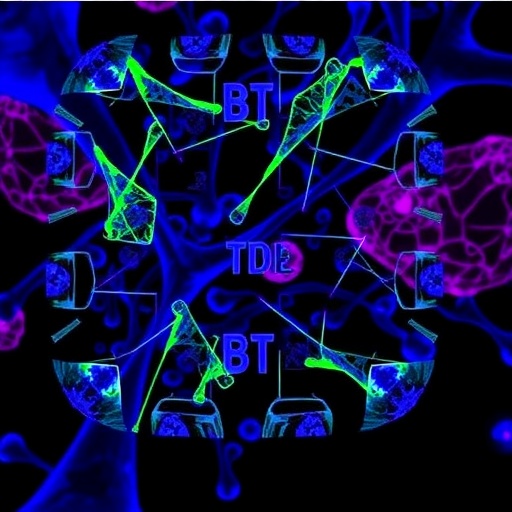In a groundbreaking study published by Zhang et al. in BMC Neuroscience, researchers discovered that the retinoid compound Tamibarotene plays a pivotal role in promoting the differentiation of neuroblastoma SH-SY5Y cells into neurons. This finding represents a significant advancement in the understanding of neuroblastoma treatment modalities and their mechanisms. The study highlights the crucial involvement of the phosphoinositide 3-kinase (PI3K)/AKT signaling pathway in this differentiation process, offering new insights that could guide future therapeutic strategies.
Neuroblastoma, a common pediatric cancer arising from neural crest cells, poses formidable challenges in both treatment and survival rates. The aggressive nature of the disease often leads to poor prognosis in afflicted children. However, breakthroughs such as the one provided by Zhang et al. may signal a paradigm shift in potential therapeutic interventions. By utilizing Tamibarotene, a compound already known for its efficacy in treating acute promyelocytic leukemia, the researchers have shifted their focus towards neuroblastoma and neural differentiation.
The effects of retinoids like Tamibarotene on neural cell fate have been under scrutiny for years, yet their exact mechanisms of action remain partly elusive. In this study, the authors meticulously explored how Tamibarotene interacted with SH-SY5Y cells, a well-established human neuroblastoma cell line frequently used for cancer research and neurobiological studies. Through a series of experiments, they demonstrated that the administration of Tamibarotene not only promotes morphological changes indicative of neuronal differentiation but also upregulates key neuronal markers.
Central to this study is the activation of the PI3K/AKT signaling pathway, a critical molecular pathway known for its role in cell growth, proliferation, and survival. The researchers employed various assays and analyses to assess the downstream effects of PI3K/AKT signaling activation upon Tamibarotene administration. The findings revealed that this pathway was significantly activated, corroborating the hypothesis that modulation of this pathway is essential for neuroblastoma cell differentiation into functional neurons.
Further examination revealed that Tamibarotene-induced activation of PI3K/AKT signaling leads to the upregulation of neurogenic transcription factors. These elements are crucial for steering neuroblastoma cells toward a neuronal phenotype. By mimicking natural neuronal development pathways, Tamibarotene may facilitate a more therapeutic approach to treating neuroblastoma, potentially reducing the malignancy of these aggressive cells.
Compared to traditional treatments that often result in severe side effects and limited efficacy, the potential of Tamibarotene offers a glimmer of hope. Its mechanism, primarily associated with promoting differentiation rather than directly targeting cancer cells for destruction, may reduce detrimental impacts on non-cancerous cells and contribute to better quality of life for patients undergoing treatment.
The study further highlights the importance of understanding the interaction between cancer biology and neurogenesis. As researchers delve into the intricacies of how malignant tumors like neuroblastoma interact with the nervous system, the need for innovative
Tags: acute promyelocytic leukemia treatmentschallenges in neuroblastoma prognosisgroundbreaking neuroscience researchmechanisms of neural differentiationneuroblastoma cell differentiationnovel cancer treatment modalitiespediatric cancer advancementsPI3K/Akt signaling pathwayretinoid compounds in oncologySH-SY5Y cell line researchTamibarotene neuroblastoma treatmenttherapeutic strategies for neuroblastoma





